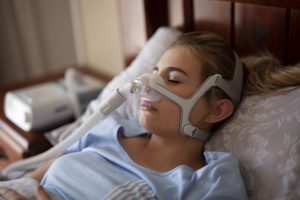
One, because they are being polite. They could also be alerting you of a potentially severe health problem.
Regular snoring, which you may not even notice, could be a sign of obstructive sleep apnea. If left untreated, it can lead to serious health problems like a heart attack, dementia, and more.
But how do you know if you’ve got more than just a snore?
Not everyone who snores has sleep apnea, but it is a warning sign.
When your partner tells you that you were snoring, ask them how it sounded. If you were gasping or choking during sleep, and snoring excessively, it could signify sleep apnea
Other potential tells include fatigue or daytime sleepiness (particularly if you think you’ve slept well), obesity, and high blood pressure.
Unrefreshing sleep, insomnia, morning headaches, waking regularly to go to the bathroom, trouble concentrating, low libido, poor memory, and falling asleep during the day can also indicate sleep apnea.
The longer you put off an examination or treatment, the more at risk you become for some severe health problems. Thankfully, many of the damaging effects of the condition can be stopped or reversed with proper diagnosis and treatment.
If you’re keeping your partner awake and are trying to practice good sleep hygiene, booking an appointment at a sleep clinic is recommended. They can assess whether you’ve got sleep apnea and treat it if needed.
The most common and effective treatment is a CPAP machine, which stands for continuous positive airway pressure. It opens up airways to encourage better breathing to cut down snoring and gasping so you and your partner can get a good night’s rest.